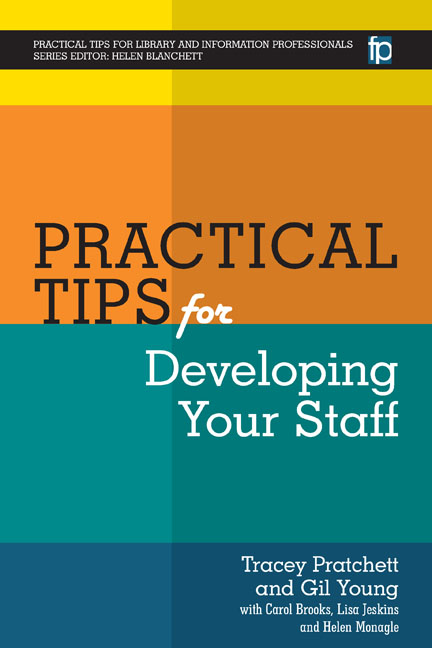Book contents
- Frontmatter
- Contents
- List of figures and tables
- Acknowledgements
- The authors
- List of abbreviations
- Series Editor's introduction
- Introduction
- Section 1 Theories
- Section 2 Infrastructure
- 11 Why develop staff?
- 12 Workforce planning
- 13 Job descriptions
- 14 Person specifications
- 15 Advertisements
- 16 Shortlisting
- 17 Interviews
- 18 Interviews – presentations and tests
- 19 Interviews – feedback
- 20 Inductions
- 21 Managing performance
- 22 Team development plans
- 23 Appraisals – preparing
- 24 Appraisals – conducting
- 25 Setting objectives
- 26 One-to-ones
- 27 Feedback – general
- 28 Team building
- 29 Team meetings
- 30 Sharing learning with the team
- 31 Writing references
- 32 Exit interviews
- 33 Effective handover
- Section 3 Activities and tools
- Index
22 - Team development plans
from Section 2 - Infrastructure
Published online by Cambridge University Press: 09 June 2018
- Frontmatter
- Contents
- List of figures and tables
- Acknowledgements
- The authors
- List of abbreviations
- Series Editor's introduction
- Introduction
- Section 1 Theories
- Section 2 Infrastructure
- 11 Why develop staff?
- 12 Workforce planning
- 13 Job descriptions
- 14 Person specifications
- 15 Advertisements
- 16 Shortlisting
- 17 Interviews
- 18 Interviews – presentations and tests
- 19 Interviews – feedback
- 20 Inductions
- 21 Managing performance
- 22 Team development plans
- 23 Appraisals – preparing
- 24 Appraisals – conducting
- 25 Setting objectives
- 26 One-to-ones
- 27 Feedback – general
- 28 Team building
- 29 Team meetings
- 30 Sharing learning with the team
- 31 Writing references
- 32 Exit interviews
- 33 Effective handover
- Section 3 Activities and tools
- Index
Summary
A KEY COMPONENT of successful performance management is to ensure that individuals are equipped with the skills, knowledge, experience and behaviours to do the job in hand. As a manager you will need to understand clearly those areas where individual team members and the team as a whole are competent and any areas which require further development. You will then need to draw up a plan to address any development needs you have identified. This plan should take into account the aspirations of individual members of the team.
The first step in drawing up an effective development plan is gaining an understanding of what the development needs are in terms of the individual, the team and the organization. This needs to take into account a number of factors, including:
• the requirements of the task/job/project
• the current skills, experience and knowledge level of the individual
• the current skills, experience and knowledge level of the team as a whole
• how individual team members like to learn.
As a line manager you will have numerous sources of information from which to gather this information. These include, but are not limited to:
• your own observations of the skills, knowledge and experience of individual team members and the team as a whole
• information obtained through more formal avenues such as personal development plans, one-to-ones and appraisals
• your knowledge of the tasks individuals and the team are currently expected to perform
• your knowledge of forthcoming projects
• horizon scanning, both internally and externally, to identify future trends and developments which may have an impact on your service.
In addition to this information you might have access to organizational information, such as a training needs analysis conducted by HR or, if your team is part of a larger LKS team, an analysis carried out for the service as a whole. The CILIP Professional Skills and Knowledge Base (CILIP, 2013) can be a useful tool in helping to identify individual development needs.
Armed with this knowledge you can begin to put together a development plan. The priority is to get the current work done, followed by work coming up and then look at the longer-term needs of the individual, team and organization.
- Type
- Chapter
- Information
- Practical Tips for Developing Your Staff , pp. 52 - 54Publisher: FacetPrint publication year: 2016



